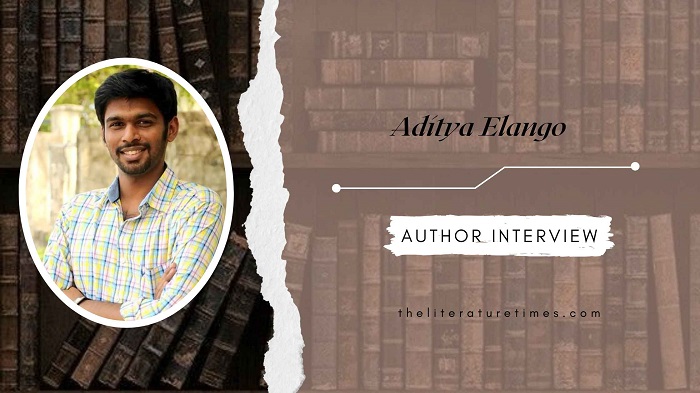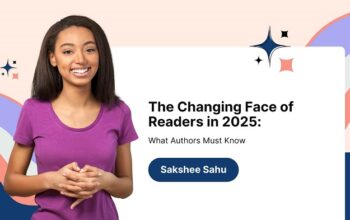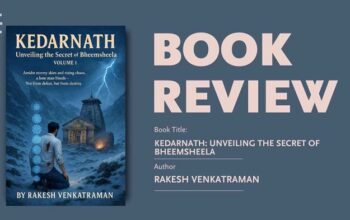Aditya Elango, a former international badminton player from Tamil Nadu, channels his athletic discipline and life lessons into storytelling. Drawing from resilience, focus, and teamwork, he crafts Aura’ah Academy as a blend of sport, suspense, and self-discovery. Through his writing, he inspires courage, community, and the pursuit of purpose.
The Literature Times: What inspired you to transition from international badminton to writing a YA thriller?
Aditya Elango: After a decade of coaching over a thousand young athletes in Chennai, I noticed a troubling pattern — many kids were waiting to be told what to do instead of discovering it for themselves. Champions aren’t spoon-fed; they grow through curiosity and struggle. I wanted to rekindle that spark — to make young readers fall in love with the process of finding their own power. Writing Aura’ah Academy became my way of coaching through story — helping them explore resilience, friendship, and self-belief beyond the court..
The Literature Times: How did your experiences as an athlete influence the themes of discipline and resilience in Aura’ah Academy?
Aditya Elango: When I began my journey, badminton was almost invisible in Tamil Nadu — there were no systems, no mentors, and no roadmap. Becoming the first player from my state to represent India taught me what it truly means to stay the course when the odds are stacked against you. That relentless rhythm — the early mornings, the failures, the small victories — became the heartbeat of Aura’ah Academy. Discipline and resilience aren’t just themes in the book; they’re the pulse behind every character who chooses to rise again after falling.
The Literature Times: Can you share the story behind the banyan tree and the iron door in your book?
Aditya Elango: I studied at a school called Vana Vani, nestled inside the IIT Madras forest. Every morning, we gathered under a massive banyan tree for prayer — its roots stretching deep, its branches sheltering generations. That image stayed with me: strength that grows quietly, patiently. The banyan became a symbol of rootedness in Aura’ah Academy — of memory, community, and courage that endures.
The iron door, on the other hand, represents mystery — the truths that resist being easily opened. Every locked door holds something worth the struggle. What lies behind it might be difficult to uncover, but it’s that pursuit — the courage to face the unknown — that shapes who we become. Aura’ah Academy was born from that belief: to keep reaching for the doors that test us.
The Literature Times: Which authors or books shaped your storytelling style?
Aditya Elango: I grew up on the adventures of Enid Blyton and Willard Price — stories that celebrated curiosity, teamwork, and courage. As I grew older, Paulo Coelho and Jack Canfield reshaped the way I saw purpose and resilience. Their words taught me that every journey — whether on a court or within the mind — begins with belief. Aura’ah Academy blends those worlds: the pulse of adventure from my childhood and the quiet introspection of my adulthood. It’s action meeting awareness — where play becomes philosophy.
The Literature Times: How did you develop the psychic pandemic and its eerie world in the novel?
Aditya Elango: The idea came to me almost instinctively — like a whisper I couldn’t ignore. I didn’t outline it at first; I simply followed the feeling of silence and fear that the world seemed to carry during the pandemic years. What if the next global crisis wasn’t physical, but mental — a psychic pandemic where thoughts themselves could spread?
From there, the world of Aura’ah Academy grew on its own. I built it like a mirror — a reflection of how noise, distraction, and emotional overload can freeze us from within. The eerie world of the book isn’t about monsters outside; it’s about the silence inside us when we stop listening. That’s where the sci-fi met the soul.
The Literature Times: What challenges did you face while merging sports elements with fantasy and suspense?
Aditya Elango: Surprisingly, blending sports with fantasy felt natural to me — both are about rhythm, focus, and unseen energy. On the court, you battle exhaustion; in the mind, you battle fear. Aura’ah Academy just brings those two arenas together.
The real challenge wasn’t the fusion itself, but weaving three storylines into one pulse — making sure every thread connected without losing momentum. I wanted each subplot to close cleanly, while leaving just enough mystery alive for the larger saga to breathe. Balancing that structure was like coaching a team: every move needed timing, purpose, and trust in the process.
The Literature Times: If Reyom were based on your younger self, what traits would you recognize?
Aditya Elango: That’s an interesting question. In truth, Reyom carries only a part of me — I see more of my younger self scattered across Ori and Zuri, too. Like them, I was cheerful on the surface but always observing quietly underneath, trying to understand the world before stepping into it.
Reyom, though, reflects my instinct to lead — not in the loud sense, but in the way athletes often do: by staying grounded when chaos hits. He represents the version of me that learned to take responsibility early, to steady others even when I wasn’t sure myself. In many ways, he’s the echo of every young athlete I’ve coached — searching for courage, but leading anyway.
The Literature Times: How did coaching young players influence the characters and moral lessons in the story?
Aditya Elango: The idea for Aura’ah Academy was born directly from my years of coaching young players. I saw brilliant kids — talented, hardworking — but often missing one key ingredient: self-discovery. Many waited to be told what to do instead of exploring what they could become.
Coaching taught me that discipline means little without curiosity, and victory means nothing without imagination. Today’s children grow up measuring results more than dreams — something I wanted to challenge through this story. Aura’ah Academy is my way of giving them a mirror, to remind them that resilience begins with wonder.
And for parents, I hope Coach Drona becomes a quiet reminder: guidance is not control — it’s the art of letting your child find their own rhythm.
The Literature Times: What do you hope readers take away about courage, community, and personal growth?
Aditya Elango: At its heart, Aura’ah Academy is about facing the storms inside us before we face the ones outside. I hope young readers learn that courage isn’t the absence of fear — it’s the choice to move forward anyway, often with the quiet strength of friends beside them.
The story also celebrates community — the belief that growth doesn’t happen in isolation. Whether it’s a team on a court or a circle of friends under a banyan tree, we rise higher together.
And for parents, I hope the book offers a gentle mirror — a way to see what their children feel but rarely say. True guidance begins with listening. If the story inspires even one conversation that brings a family closer, I’ll consider that the real victory.
The Literature Times: Are there plans for a sequel or continuation of Aura’ah Academy?
Aditya Elango: Yes — Aura’ah Academy is envisioned as a three-part saga. Book Two and Book Three will release together on April 14th, 2026, continuing the journey that began under the banyan tree.
The scale will grow with each chapter of their story — from the walls of the academy to the continents beyond, and eventually, to a cosmic stage where the fight for humanity’s spirit begins. But even as the battles expand, the heart of the series remains the same: a group of friends learning what it truly means to stand for something.
If Book One was about finding courage, Book Two will test it, and Book Three will ask what we’re willing to become for the sake of the world.



